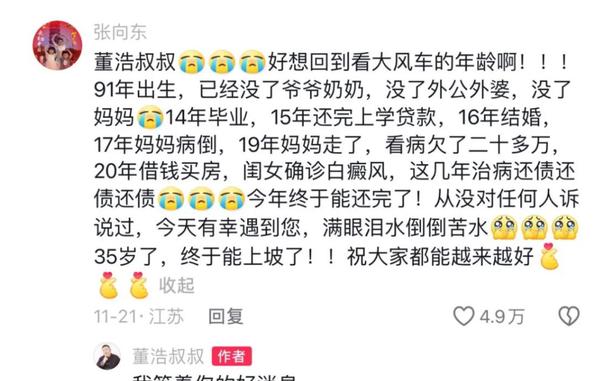The Cultural Impact of Uncle Dong Hao's TV Show on China's 80s and 90s Generation
When Chinese TV host Uncle Dong Hao reached out to find viewers from 30 years ago, he received an overwhelming 170,000 emotional responses from people born in the 1980s and 1990s, revealing deep nostalgia and current life challenges.

The recent viral phenomenon surrounding Uncle Dong Hao, a beloved Chinese children’s TV host, has sparked an unprecedented emotional response that reveals much about generational experiences in modern China. When Uncle Dong, now 68, made a social media post seeking viewers from his show “Big Windmill” from 30 years ago, he received over 170,000 responses that laid bare the complex emotions of China’s 80s and 90s generation.
This generation holds a unique place in China’s modern history. They were the first to experience a genuine childhood during China’s reform and opening period, enjoying unprecedented access to entertainment, education, and material comfort. Their early years coincided with China’s cultural renaissance, as international media and entertainment began flowing into the country. Shows like “Big Windmill” hosted by Uncle Dong represented this optimistic era, providing educational content wrapped in warmth and sincerity.
However, the contrast between their carefree childhood and current adult struggles forms the core of their emotional response. Many commenters shared deeply personal stories - of losing family members, battling illness, facing financial hardships, and struggling with work-life balance. One particularly moving comment came from a 90s-born viewer who detailed losing multiple family members while managing heavy debt and a child’s medical condition.
The generation’s challenges are multifaceted. They faced intense competition in education and employment, missed the early waves of China’s economic boom, and encountered a rapidly changing job market. The COVID-19 pandemic further disrupted their career trajectories and life plans. Unlike their parents' generation who experienced hardship early but saw gradual improvement, many feel their lives have become increasingly difficult despite their education and efforts.
What makes Uncle Dong’s impact particularly significant is how he represents more than just nostalgia. In an era of manufactured internet celebrities, his genuine warmth and sincerity stand in stark contrast to contemporary social media culture. His show embodied values of trust, kindness, and mutual support that many feel are increasingly rare in modern society.
The mass emotional response also highlights a deeper societal need for emotional expression and connection. For many in their 30s and 40s, caught between caring for aging parents and raising children while managing career pressures, finding spaces to voice their struggles has become increasingly difficult. Uncle Dong inadvertently provided this space, allowing them to reconn authentic selves.
Their collective response transcends simple nostalgia, pointing to broader questions about social values, generational experiences, and the emotional costs of rapid development. While their childhood watching Uncle Dong represents a simpler, more optimistic time, their current reality reflects the complex challenges of modern Chinese society.
This phenomenon demonstrates how shared cultural touchstones can unlock powerful collective emotions and social commentary. Through Uncle Dong’s simple act of reaching out to his former audience, he revealed not just individual stories but a generational narrative about growth, struggle, and the search for meaning in contemporary China.